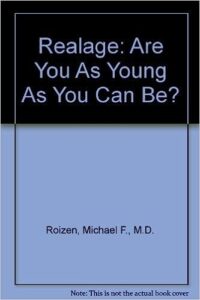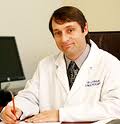As one ages, the body loses muscle mass and becomes frail. This natural phenomenon is called sarcopenia. It can be dramatically slowed or even reversed with the four basics of good health: 1) adequate amounts of high-quality protein, mostly with food (eggs, meat, poultry, fish, dairy, beans, nuts, whey powders), 2) movement (walking, exercise, cleaning, gardening, etc.), 3) adequate amounts of quality sleep, and 4) nutritional supplements (daily vitamin, resveratrol, calcium, magnesium, fish oil, 5,000 IU vitamin D, sublingual vitamin B-12, CoQ10, blueberry extract).
As you age, your skin dries, wrinkles, and thins and this makes you look old. Two practices I learned of and used for an entire year to fully work was taking 1000 mg fish oil capsules/day and bathing only with Dove soap, plus avoiding bad habits like smoking and sunbathing, both of which wrinkle your skin. You can’t change your genetics but you can change enough of the four basics to good health to significantly delay, reverse, and possibly avoid Alzheimer’s and other degenerative diseases of aging. The following explains the four basics:
- FOOD: Chicken and fish are the only meats that don’t significantly raise your risk of death each year. Processed meats cured with nitrites (lunch meats, hot dogs, bacon, etc.) also significantly raise the risk of death. Eat nine vegetables and fruits daily, but no potatoes, no sugared fruits, and only stone ground whole wheat bread. Use no or very little sugar or artificial-sugar-sweetened beverages. Instead, use the natural sweetener, stevia, in your coffee or tea. Only use extra virgin olive oil from California since 80% of imported olive oils sold in the U.S. are adulterated with cheaper oils. Avoid partially-hydrogenated margerine as well as high-fructose corn syrup (found in non-dairy coffee creamer).
- EXERCISE: Aside from food, exercise is the next most important factor determining good health, both cardio and weights. If you can’t be bothered with these, then walking 30-minutes/day for 5 days each week is the next best thing. Try walking at a moderate pace and every 5-minutes or so try stepping up the speed for a minute.
- SLEEP: Most adults need seven hours of sleep/night for optimum health. Many people, however, suffer from obstructive or even central sleep apneas. If you snore, you may have sleep apneas. I’ve tried C-PAP (continuous positive airflow pressure), Bi-PAP, and V-PAP since 1991 after an overnight sleep study showed that I had 59 arousals every hour of sleep. I therefore now use (after 4 more sleep studies) a VPAP (variable positive airflow pressure) every night. Sleep apneas cause wrinkles and fine lines around eyes as well as making your gut protrude, increase your chances of Alzheimer’s, etc.
- SUPPLEMENTS: a half-century ago there was very little research on nutritional supplements, and most health claims were therefore B.S.; today there is a ton of research (testimonials are not research) thanks to Life Extension Foundation-funded research, as well as LEF’s monitoring and reporting of research from around the world. Since many people have limited funds, you need to know the few essential supplements everyone should take daily: 1)multi-vitamin-mineral; 2)calcium; 3)magnesium; 4)fish oil; 5)vitamin B-12 lozenge; 6)5,000 IU vitamin D; 7)CoQ10; 8) Resveratrol; 9)blueberry extract. Avoid most herbal supplements.
Your face reflects your overall heath. While many are not too concerned about health benefits, most do want to look their best. Hair dye will make you look a lot younger, however actions taken to improve your health will make you look your best. Follow the four basics I cited above and you will look great. Be sure to take fish oil supplements and use Dove soap and give it a full year to work its magic. I’m 80 but am told I look 60 or younger so I know it works.



